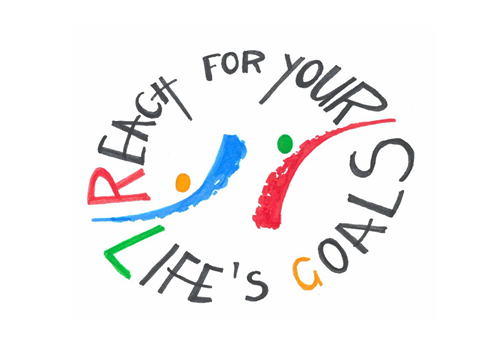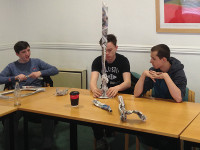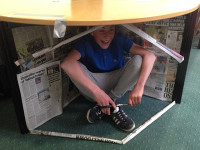The first Scottish test group
(May 2015)
The Scottish partners cooperated with a secondary school to deliver the RLG programme in their local area of Stirlingshire. The students for the test group were recommended by the school. They selected young people aged 15-16 years who did not plan to continue their studies.
The potential participants were informed about the aims and features of the RLG programme and the developers had a chance to communicate with the learners personally. The managers of the school and the parents affected were also informed about the programme. Ten young people entered the test group. There were some common features of the group which consisted of boys: they had rather low levels of literacy and numeracy skills and the majority did not have an idea what to do after finishing compulsory school.
The Scottish partners thought to make the programme more successful by implementing the testing process outside the school. The participants were driven to a different locale by a minibus and were taken back after the activity. A local company hosted them in two rooms in a business centre equipped with PCs plus supplementary public rooms free of charge.
The students tried a number of exercises and gave feedback to the trainers by using evaluation sheets with smilies. Results show that they were highly motivated in particular when they:
- could do practical and fun activities,
- had competitions,
- had chances to win prizes or awards,
- could create their team leaders,
- were given responsibilities,
- received positive feedback concerning their achievements.
As well as the above, the partners can draw some conclusions regarding time management and sequencing of exercises which should be taken into consideration for future training sessions.
Though the first stage of testing focused on trying out the tools. The developers also took into account how the activities would influence the young people. The most important consequences were as follows:
- All ten participants enjoyed the activities. Only two of them noted that the behaviour of their peers was the only thing they were disturbed by.
- After finishing the programme five of the participants wanted to find work experiences and one undertook a part time job.
- Four students applied for a part time learning programme in their own school during the fifth non-compulsory school year.
- Two of them wanted to apply for a vocational place after leaving school.
- Two students reduced their school absences after joining the programme.
- Two out of the ten students did not show any positive changes.
2015-07-01









